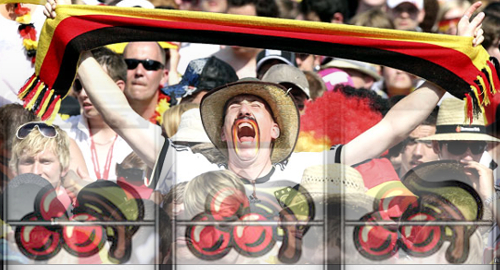 Germany’s online casino and poker fans are celebrating reports that their country will finally lift its ban on products other than pre-match online sports betting.
Germany’s online casino and poker fans are celebrating reports that their country will finally lift its ban on products other than pre-match online sports betting.
On Wednesday, German media reported that the country’s 16 state governments had agreed in principle on the framework of a new federal gambling treaty that will include online casino, poker and limited forms of in-play sports betting.
The new treaty is said to include the current stopgap treaty’s €1k monthly deposit limit, although individual gamblers will have the option to set this limit at a lower level. There will also be a central registry for gamblers who wish to self-exclude from all German-licensed sites and operators would have to employ an “automated system” for early detection of suspected problem gambling activity.
There would also be a ban on all gambling advertising on television and online between 6am and 11pm and a blanket ban on promoting gambling products during live sports broadcasts. It’s unclear how this might affect gambling operators’ existing sponsorships of German sports teams and bodies.
The treaty would establish a nationwide gambling regulatory body to replace the current state-level oversight. This in itself will produce no shortage of jockeying, as at least four states reportedly believe they should be the ones to take on this new responsibility.
The leaders of the 16 state governments will reportedly meet with stakeholders next month to haggle over the final details with an eye towards casting a vote on the finished treaty on March 5. Assuming this treaty is then ratified by all 16 state parliaments, the new rules would officially take effect on July 1, 2021, the date on which the stopgap betting-only treaty is set to expire.
GOOD, NOT GREAT, SAY OPERATORS
The German Sports Betting Association (DSWV) issued a statement saying the agreement marked “a first step towards modern, market-compliant gaming regulation in Germany.” However, the group questioned whether the new treaty’s limitations would prevent the “successful transfer of customer demand into the regulated market.”
The DWSV’s biggest beef is with the new treaty’s “very tight admissibility” of in-play sports betting, which the DSWV believes will eliminate most betting activity on tennis or basketball, while incentivizing “disappointed” gamblers to turn to “black market offerings” to find the opportunities they seek.
The new treaty will also prevent gamblers from simultaneously accessing accounts on more than one German online licensee. Gamblers will have to wait five minutes after logging out of one account before logging in to an account on another online licensee, apparently to prevent odds-shopping. The DSWV maintains that this “completely ignores the reality of life for consumers in the digital age.”
With the states now bending on the online casino/poker issue — although online slots will reportedly be limited to a maximum stake of €1 per spin — it will be interesting to see how many German-facing operators start blocking their customers from accessing these products in order to remain in the regulatory good books.
At present, online casino and poker are only legally available in the state of Schleswig-Holstein, which approved such activities eight years ago, but licensees have used this regulatory fig leaf to offer these forbidden products to gamblers across Germany.
